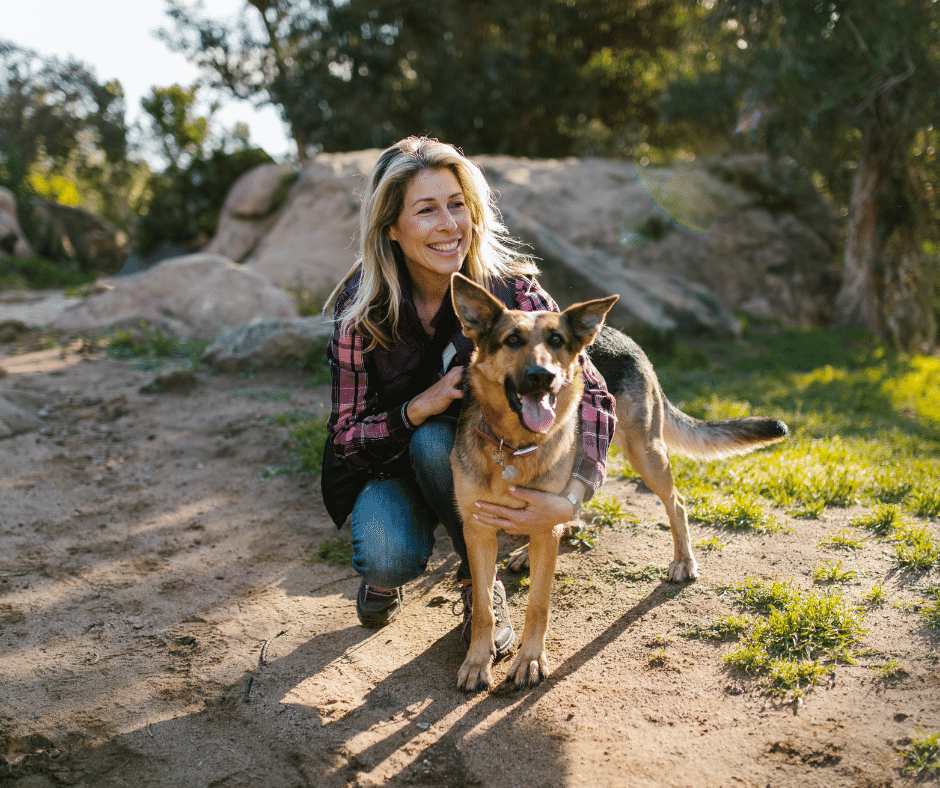Canine Distemper VS. Kennel Cough
Kennel Cough, also known as infectious tracheobronchitis, can be quite difficult to distinguish from pneumonia associated with Canine Distemper, or even Canine Distemper itself, because of the similarities in their symptoms. To make things even more confusing, the Canine Distemper Virus can sometimes cause Kennel Cough in dogs. Since the virus weakens the immune system, it makes them more susceptible to diseases, such as Kennel Cough. However, the bacteria that actually causes the condition is called Bordatella bronchiseptica.
Just by looking at the symptoms, even medical professionals can sometimes have trouble identifying whether a dog is exhibiting symptoms of Kennel cough or the initial signs of Canine Distemper. Veterinarians will typically need to do some chest x-rays and bloodwork to determine the most likely cause of the symptoms and assess the severity of the disease.
Transmission
 The Canine Distemper Virus is spread from one dog to another through all forms of bodily secretions, including saliva, nose and eye discharges, urine, vomit, and blood. That means healthy dogs can contract the virus if they use contaminated food bowls, or if an infected dog coughs or sneezes near them. Additionally, since the virus can survive for a good few hours outside a host at room temperature, it can also be transmitted through fomites, such as hands, feet, clothing, equipment, instruments, and surfaces.
The Canine Distemper Virus is spread from one dog to another through all forms of bodily secretions, including saliva, nose and eye discharges, urine, vomit, and blood. That means healthy dogs can contract the virus if they use contaminated food bowls, or if an infected dog coughs or sneezes near them. Additionally, since the virus can survive for a good few hours outside a host at room temperature, it can also be transmitted through fomites, such as hands, feet, clothing, equipment, instruments, and surfaces.
Kennel Cough is so named because the disease can spread among dogs kept in close proximity, like in dog kennels and animal shelters. Similar to Canine Distemper, Kennel Cough can also survive for a few hours outside the body and be transmitted through direct dog-to-dog contact, bodily fluids, and fomites. However, since it’s considered to be an airborne disease, it’s primarily spread through the air and can remain infective around the environment for up to two weeks. So, dogs are more likely to contract Kennel Cough by inhaling contaminated air than through fomites.
Symptoms


During the first stage, infected dogs exhibit symptoms that resemble Kennel Cough the most: coughing, sneezing, fever, weakness, and eye, and nose discharges. Then, in the second stage, they experience gastrointestinal problems, such as nausea, vomiting, and diarrhea. Lastly, in the third stage of the disease, neurological symptoms such as circling, head tilts, involuntary muscle tics, seizures, and other behavioral changes start to show. In severe cases, dogs may become partially or completely paralyzed.
For a more detailed explanation of the three stages of Canine Distemper symptoms, click here!
The symptoms of Kennel Cough are incredibly similar to the early symptoms of Canine Distemper: a hacking cough—like the dog is choking, sneezing, fever, and eye and nose discharges.
The severity of Kennel Cough symptoms can range from mild to severe, but some dogs can remain completely asymptomatic all throughout the course of the disease. However, it’s not much of a problem since Kennel Cough usually resolves on its own and most dogs will recover just fine without treatment.
Duration of Infection
Dogs with Canine Distemper show symptoms of infection within one to four weeks after contracting the virus. However, they can start spreading the disease in as early as five days after becoming infected—even before they show any signs of infection themselves. They can also remain contagious for up to four months after they recover.
Kennel cough is considered a self-limiting illness. That means, infected dogs normally recover on their own, even without the help of medications. In most cases, Kennel Cough goes away within about 7-21 days. Although, if you notice the symptoms getting worse after 5-7 days, it’s best to contact your veterinarian immediately.
Treatment


They receive IV fluids to keep them from getting dehydrated because of diarrhea, anti-emetics (drugs that prevent vomiting) to help with nausea and the constant vomiting, antibiotics to fight off infections, and anti-seizure medications to control the muscle tics, tremors, or seizure episodes.
Kennel Cough, on the other hand, is very much treatable. Since the disease is usually caused by a bacteria and a virus, infected dogs are given a combination of antibacterial and antiviral medications as well as cough suppressants. Some of the most common medications prescribed to dogs with Kennel Cough are Doxycycline and Clavamox.
Prevention
The best way to protect your dog from Canine Distemper is through vaccination. If you have a new puppy, it’s important to make sure they get the full series of shots. They will need to receive their first Distemper shot at about 6-8 weeks of age, then every 3-4 weeks until they reach 16-20 weeks of age. After that, they’ll only need to get a booster shot every one to three years, depending on your veterinarian.
To prevent your dog from contracting Kennel Cough, it’s essential to keep up a rigorous cleaning routine both inside and around your home. Make sure to sanitize all your pet’s belongings, such as food and water bowls, toys, beddings, as well as all the furniture, equipment, and surfaces inside the home and out in the yard. You can also use an air-disinfectant spray, like Lysol® Neutra Air Sanitizing Spray, to keep the air inside your home clean and germ-free.















